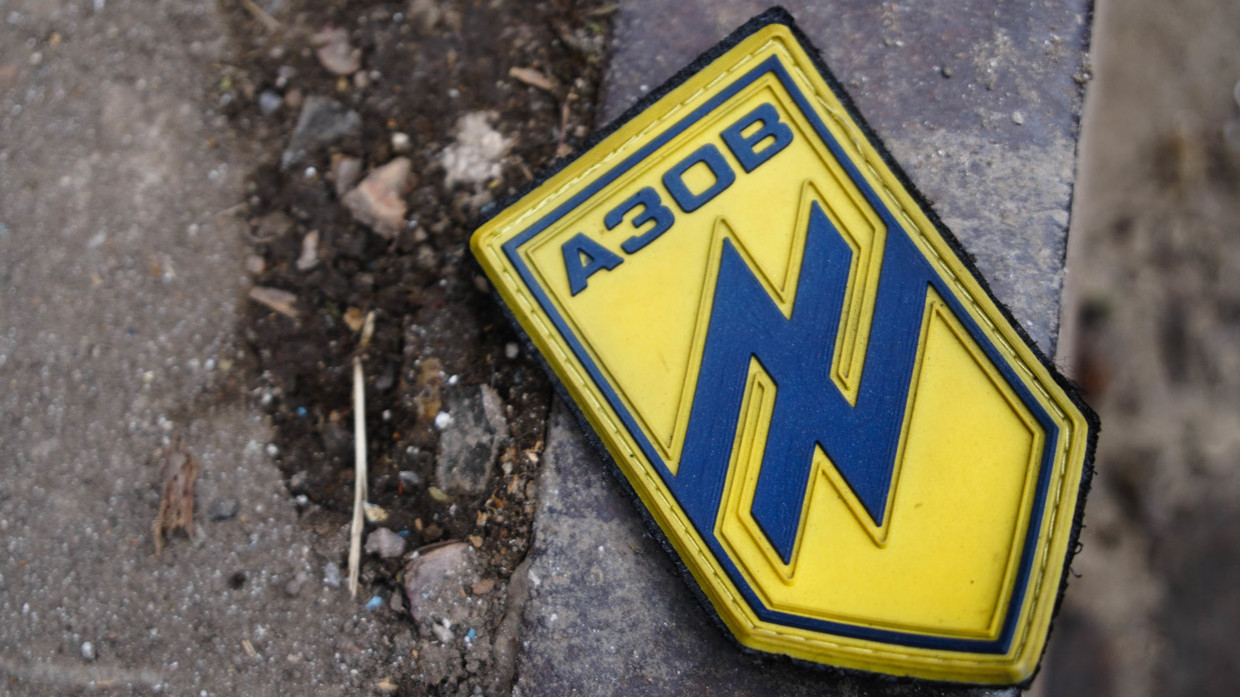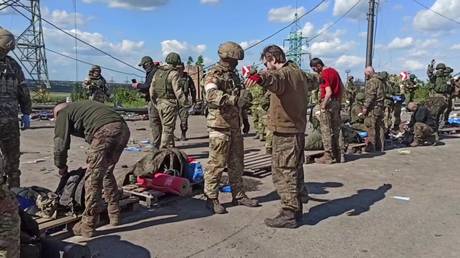Major British media outlets are providing one-sided coverage of the Ukrainian conflict and are making efforts to exonerate neo-Nazis in the country, Steve Sweeney, an international editor at London newspaper the Morning Star, has told RT.
Sweeney, who recently returned from the city of Lviv near the border with Poland, said he had to travel there himself because “the British media reporting [on Ukraine] is now incredibly restricted.”
“You have the Times, the Telegraph, the Guardian, the BBC, Sky News, Channel 4 all really producing identical reports from Kiev and Lviv that don’t deviate at all from the government line, from the NATO line on what’s happening” in Ukraine’s conflict with Russia, he said.
“A great effort is being made to really whitewash or rehabilitate the [Neo-Nazi] Azov [military battalion] as either having no influence in Ukraine or being just simply misunderstood nationalists,” the journalist pointed out.
The Azov battalion is an infamous neo-Nazi unit in the ranks of the Ukrainian military. Its members have fought Russian forces in the strategic port city of Mariupol since the start of Moscow’s military operation. Many of them were killed, while the rest, including a number of commanders, laid down their arms earlier in May after being holed up at the Azovstal steel plant for weeks. Footage of the surrendering fighters reveals many of them sporting tattoos of Swastikas and other Nazi symbols.
Sweeney went as far as to describe the BBC’s reporting on the Azov battalion as “a masterclass in fascism denial.”
The Morning Star editor described what he saw in Lviv, saying “the city itself was essentially full of fascists and mercenaries, and people in military fatigues that are using civilian transport networks to enter Ukraine” from Poland.
The foreigners in military gear, who say they come to Ukraine “to kill the Russians," are welcomed with open arms; they’re rolled the red carpet out and they’re slapped on the back and treated as heroes,” he said.
He also said, however that as a journalist, he was treated in a completely different fashion by the Ukrainian authorities.
“What happened to me was I was quizzed about my business in Ukraine; told that I was a spy; told that I would be arrested and tortured; and the indication was possibly worse than that, which means they would’ve potentially killed me,” Sweeney recalled.



